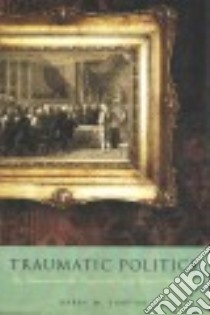Traumatic Politics - 9780271035574
Un libro in lingua di Shapiro Barry M. edito da Pennsylvania State Univ Pr, 2009
- € 28.70
- Il prezzo è variabile in funzione del cambio della valuta d’origine
The opening events of the French Revolution have stood as some of the most familiar in modern European history.Traumatic Politics emerges as a fresh voice from the existing historiography of this widely studied course of events. In applying a psychological lens to the classic problem of why the French Revolution’s first representative assembly was unable to reach a workable accommodation with Louis XVI, Barry Shapiro contends that some of the key political decisions made by the Constituent Assembly were, in large measure, the product of traumatic reactions to the threats to the lives of its members in the summer of 1789. As a result, Assembly policy frequently reflected a preoccupation with what had happened in the past rather than active engagement with present political realities.
In arguing that the manner in which the Assembly dealt with the king bears the imprint of the behavior that typically follows exposure to traumatic events, Shapiro focuses on oscillating periods of traumatic repetition and traumatic denial. Highlighting the historical impact of what could be viewed as a relatively “mild” trauma, he suggests that trauma theory has a much wider field of potential applicability than that previously established by historians, who have generally confined themselves to studying the impact of massively traumatic events such as war and genocide. Moreover, in emphasizing the extent to which monarchical loyalties remained intact on the eve of the Revolution, this book also challenges the widely accepted contention that prerevolutionary cultural and discursive innovations had “desacralized” the king well before 1789.
Informazioni bibliografiche
- Titolo del Libro in lingua: Traumatic Politics
- Sottotitolo: The Deputies and the King in the Early French Revolution
- Lingua: English
- Autore: Shapiro Barry M.
- Editore: Pennsylvania State Univ Pr
- Collana: Pennsylvania State Univ Pr (Paperback)
- Data di Pubblicazione: 01 Gennaio '09
- Genere: HISTORY
- Pagine: 216
- Dimensioni mm: 228 x 152 x 0
- EAN-13: 9780271035574


